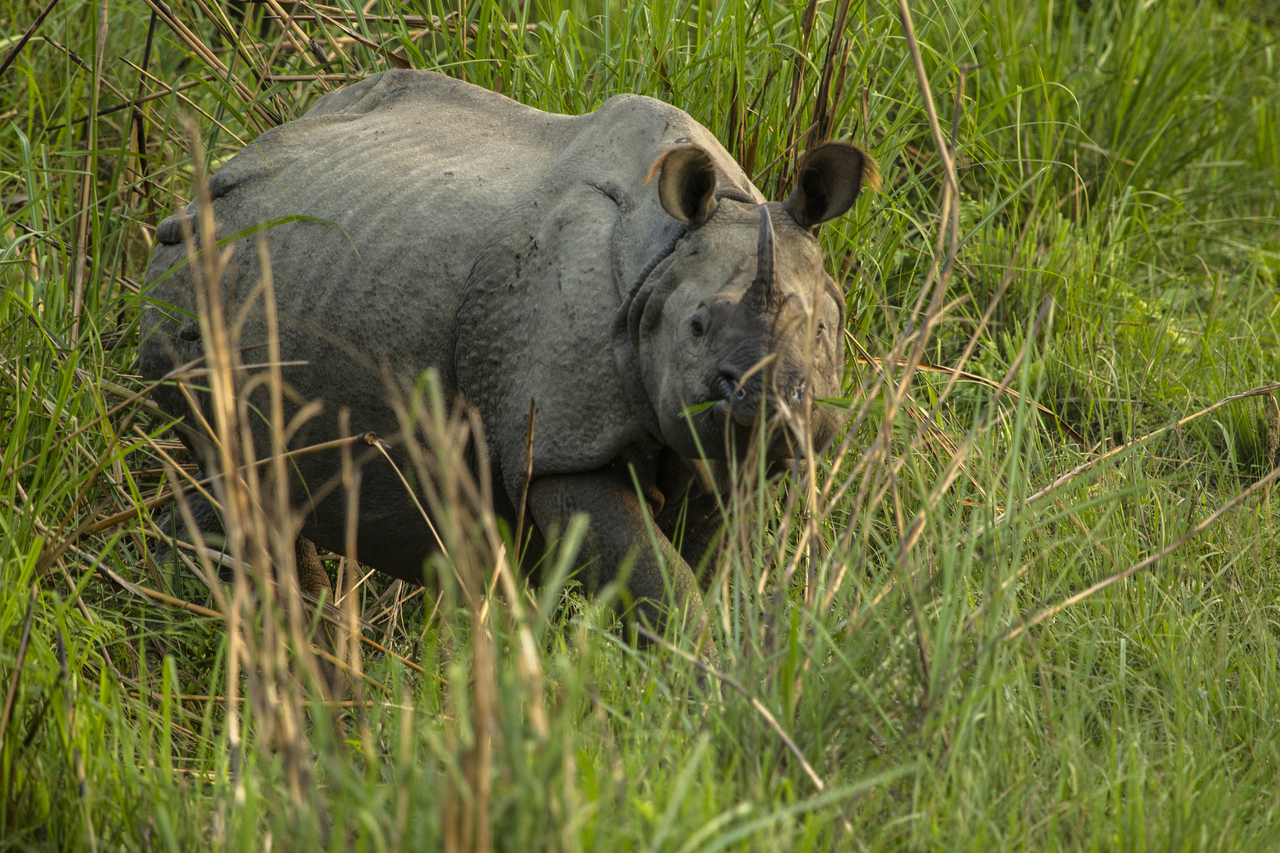While Africa struggles to stem record-breaking rhino poaching, Nepal today marked two years since its last rhino was poached on May 2nd 2014 – as well as its 4th year of zero poaching of rhinos since 2011.
“This exceptional success is based on a combination of high-level political will, and the active involvement of the park authorities, Nepal Army, Nepal Police, conservation partners and local communities,” said Krishna P. Acharya, Chief-Planning Division and Spokesperson of the Ministry of Forests and Soil Conservation.
This is the first time that Nepal has achieved two consecutive years of zero poaching, which has helped to increase its population of greater one-horned rhinos to 645, the highest recorded number in the country so far.
“It is now 730 days since a poacher last killed a rhino in Nepal: a truly remarkable achievement by the government,” said Anil Manandhar, Country Representative of WWF Nepal, which supports the government’s rhino conservation activities. “Nepal has demonstrated real conservation leadership and an effective anti-poaching path that other countries can follow.”
Nepal’s zero poaching success is rooted in a coordinated national response, which is driven from the centre and implemented at grassroots level, including enhanced protection efforts within national parks and surrounding buffer zones, involving the use of new approaches, such as the highly effective Spatial Monitoring and Reporting Tool (SMART) patrolling.
“We are already looking to sustain this success by launching ‘Mission 2nd May 2017’ – the date when we hope to announce three consecutive years of zero poaching,” said Fanindra Raj Kharel, Director General of the Department of National Parks and Wildlife Conservation. “In our effort to build effective conservation standards, zero poaching is a norm that pushes us to ensure Nepal’s iconic species are fully protected.”
Nepal has also been a driving force behind the Zero Poaching framework, which outlines the six key pillars (assessment, capacity, community, cooperation, prosecution, technology) that countries need to address. Governments and protected area authorities can now access the Zero Poaching toolkit, which contains the best available anti-poaching tools and resources.
But Nepal has also scaled up its work beyond anti-poaching to boost its rhino population.
“The zero poaching success has allowed Nepal to launch other projects to conserve its rhinos, including the recent translocation of five rhinos from Chitwan National Park to Bardia National Park,” said Manandhar. “Nepal has shown that countries can stop poaching and we are confident that its integrated conservation machinery will ensure that the rhino population continues to grow.”
Nepal achieved its first 365 days of zero poaching for rhinos in 2011. Three times since then it has not lost a single rhino to poachers over the course of 365 days. During one of those periods, Nepal did not lose any tigers or elephants to poachers either.
- Home
- Our Work
- About Us
- Resources
- Partnerships
- Policies
- Policies
- WWF Network Terms And Conditions
- WWF Non-Network Terms and Conditions
- WWF Fraud and Corruption Prevention and Investigation Policy
- WWFS Commitment to Integrity and Good Conduct Policy
- WWF Environmental and Social Safeguards Framework (ESSF)
- WWF-Singapore Procurement Terms And Conditions
- WWF-Singapore Personal Data Protection Policy
- WWF-Singapore Whistleblowing Policy














